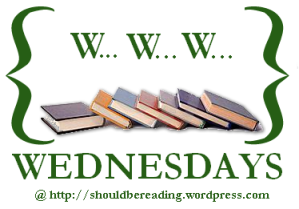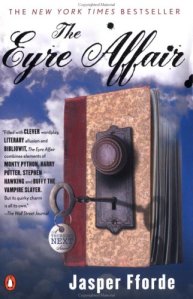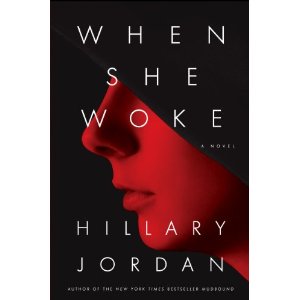
Last week, I listened to an episode of the Diane Rehm Show devoted to a discussion of Ethan Frome by Edith Wharton. First, let me state how much I love Diane Rehm! I believe she does a wonderful job as host, keeping the conversation moving with thought-provoking questions and poignant statements. In addition, I believe Diane Rehm does an admirable job evaluating literature. In the episodes of her show that are dedicated to literary discussion, Rehm demonstrates both an understanding of and affinity for great pieces of writing.
I also LOVE Ethan Frome! I first read this novel in high school, and I instantly became an Edith Wharton devotee. While many people argue that young people have a difficult time relating to the classics, my teacher made Ethan Frome accessible to her teenage audience. I remember discussing how both Ethan and Mattie felt constrained by their circumstances. What teenager hasn’t felt like a victim of their situation!?
Therefore, I was delighted to discover that Diane Rehm was devoting her show to a discussion of Wharton’s novel! As the show began, Rehm and her guests began discussing Wharton’s choice to write a novel focused on working class characters. As a member of New York’s elite, Wharton had not personally experienced the daily trials of “common” people. Eventually, the conversation changed as Rehm began to take callers. It was interesting to hear about other people’s experiences with Ethan Frome – some people reflected upon the novel with nostalgia while others remembered the book with contempt. One e-mailer’s comments struck a chord with me. She stated that her granddaughter, who had enjoyed nearly every book she was assigned to read in school, did not enjoy Ethan Frome. The woman wondered if students should be forced to read such depressing novels as part of their required curriculum. I bristled at the comment immediately. As an English teacher, I have faced the same question from parents and students at my school.
I teach Romeo and Juliet, To Kill a Mockingbird, and Animal Farm to my eighth grade students. I believe each of these works is an enduring, valuable part of my students’ literary education. Yet every year I hear the same complaint from a few students and parents – why do we have to read such depressing stories? While I am willing to acknowledge that dark literature is becoming more popular among young people, I do not believe these classics (including Ethan Frome) are depressing novels. Yes, many characters die throughout Romeo and Juliet – it is a tragedy, after all. But what about the reconciliation between the Capulet and Montague families at the end of the play? Shakespeare shows us how deep love can overcome an ancient grudge. The deaths of Romeo and Juliet illustrate an important reality: sometimes the difficult situations we face in life will lead to a greater good. The same lesson is illustrated in To Kill a Mockingbird. A sleepy southern town, hardened by decades of racism and inequality, must face its ugly, ingrained misconceptions during the Tom Robinson trial. Many characters and events in this novel are unpleasant. The history of the “malevolent phantom” living next door is certainly haunting. Mrs. Henry Lafayette Dubose, the Finch’s foul-mouthed elderly neighbor, makes life miserable for young Scout and Jem. And let’s not forget about Miss Maudie’s house fire, proof that even the respectable citizens of Maycomb County are not exempt from tribulation. Yet through these experiences, Scout and Jem grow into young people of great character. They learn what it means to be brave, to stand up for those who do not have a voice. Are these not qualities we wish all children to possess?
I think the problem lies in our definition of “depressing.” Many people label a book depressing if it does not have a Disney-fied ending, in which everyone lives happily ever after. Yet aren’t we confusing the words “depressing” and “realistic”? Life is not always easy. Every human being will face difficult times. While it is not healthy to believe that life is defined by hardships and trials alone, I think it is equally wrong to ignore that such difficulties exist. If we take these books out of our curriculum simply because they deal with tough issues, what will our children be missing? I believe they will miss out on a safe place in which to learn some of life’s hardest lessons. As a teenager, I often felt that books were like training wheels. Rather than trying to ride a bike for the first time without assistance, most parents put training wheels on their child’s bike. These wheels are designed to keep children safe as they navigate a brand new experience. Without training wheels, children wouldn’t have a safe way to acquire a new skill. In the same way, books are like training wheels, providing young people with a safe place to explore complex issues as they begin to navigate adult life. If a young person witnesses examples of great character in fiction (like Atticus Finch), perhaps they will learn to apply these traits in their behavior as well. Conversely, if a child sees how poor choices can have negative consequences (like the ancient feud between the Capulets and Montagues), perhaps they will work to rid themselves of the same qualities. Don’t get me wrong – there are clearly examples of literature that do not have any redeeming value. Yet I believe that not teaching “depressing” books simply because they don’t have a satisfactory ending would be a great disservice to our children.
If you’d like to listen to this portion of the Diane Rehm show, check it out at
http://thedianerehmshow.org/audio-player?nid=15486





